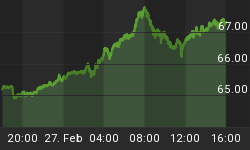In the June 4th edition of The Wall Street Journal, Greg Ip has written a piece explaining why the National Income and Product Account data, the data from which GDP estimates are derived, can be confusing and erroneous for various reasons (see "Options Hinder Efforts to Gauge Economic Growth,"). With a considerable lag, the errors and omissions get corrected. In effect, Ip is illustrating that the Fed and we mortals do not really know the current true state of the economy at any given point in time. Well, if the Fed does not know where the economy is in real time, how does it know the correct policy dial settings in real time to get the economy where it wants it? This is one reason why I and many before me, such as the late Professor Milton Friedman, have argued that the Fed should not attempt to fine tune the behavior of the economy through active and discretionary policy adjustments. Rather, the Fed should follow a rule. Probably the best rule would be to re-adopt the gold standard. But this is unlikely to occur in the lifetime of myself or anyone reading this rant. So, as a second-best (maybe twentieth best) proposal, I recommend that the Fed increase its balance sheet, essentially the reserves it creates for the banking system plus the currency held by the non-bank public, at a rate equal to the growth in the U.S. population. (For a fuller discussion of this rule, see my commentaries October 17, 2003 'Greenspan's Uncertainty Principle: Premise Accepted, Conclusion Rejected' and May 6, 2006 'Federal Reserve and Inflation Targeting - First Do No Harm') If the Fed adopted this rule, there would likely be no cumulative price increases of goods, services and assets, which presumably the Fed would be pleased with. We would experience business cycles, but they would be the result of "natural" real-side events, not Fed-induced monetary events.















